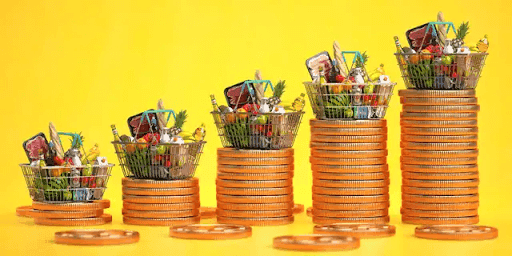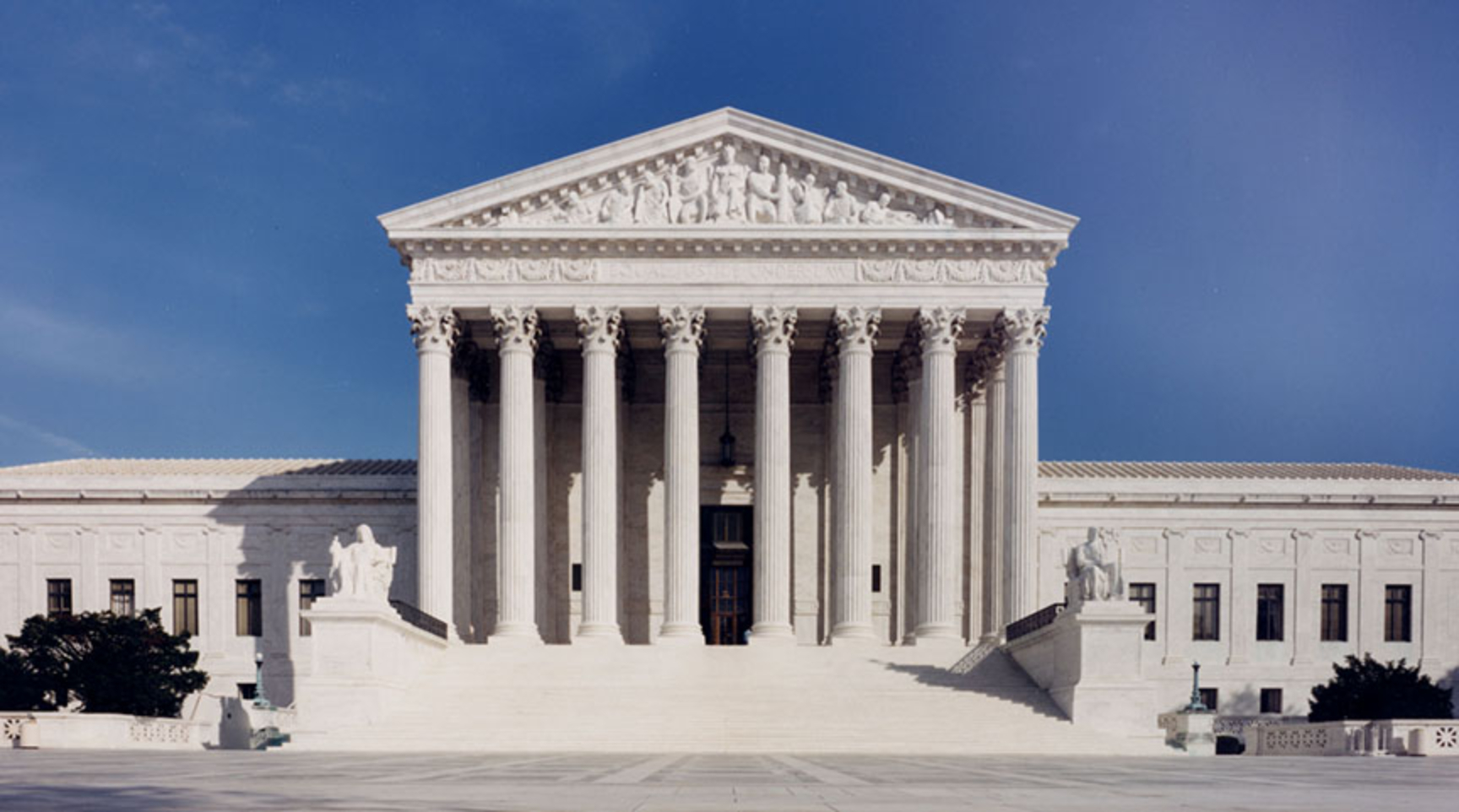The question on every economist’s mind: Has inflation peaked?

Image: Getty
The prices of many common goods have begun to fall from recent highs, according to new data from the WSJ, leading some experts to believe that US inflation could finally be on the decline.
📈📉 What’s going on?... Commodity prices – aka the cost of basic goods like oil, natural gas, corn, wheat, soybeans, lumber, and more – have skyrocketed over the past several months, contributing to historically high levels of inflation.
But many of those goods saw steep price declines in June, and are actually cheaper now than they were at the beginning of Q2.
- Natural gas prices rose 60+% from the beginning of April to early June before declining to finish the quarter 4% lower, and crude oil dropped from highs above $120/barrel to end the quarter around $106.
- Cotton has lost more than a third of its price since early May.
- Prices for copper and lumber have fallen 22% and 31%, respectively, over the past three months. (Fun fact: Copper is on the brink of a bear market, and every recession of the last 30 years has followed a bear market in copper, per Insider.)
✋ Wait, there’s more: One of the most closely watched measures of inflation – the core Personal Consumption Expenditures price index – has now fallen for three straight months, according to new Bureau of Economic Analysis data published Thursday.
- Though it should be noted this index excludes often-volatile energy and food prices, which have mostly been responsible for the recent spike in inflation.
Has inflation peaked? See the 360° View →

Sprinkles from those who think inflation has peaked
- Some commentators think US inflation rates will slow in the coming months as the supply chain- and war-related issues contributing to high inflation start to ease up.
- Others argue that America is likely past the point of peak inflation, but predict rates will remain high (but slightly lower) over the next several months as the underlying issues persist.
“It’s time to buy consumer-discretionary stocks.
Why? Investors hate them so much, they now look attractive.
Beyond the contrarian angle, here’s the high-level reasoning. When inflation rages, consumers get scared. Investors notice the weak sentiment and sell consumer stocks. But if inflation has peaked, that means these dynamics will reverse and the stocks will go up.
That’ll most likely be the case.
Inflation was largely caused by supply chain issues, demand shocks from excess stimulus, and the Ukraine war-related spike in commodity prices. Now, supply chains are being repaired, “stimmy” checks and Fed stimulus are history, and the worst of the war impact on commodity prices is probably behind us. This tells us inflation will slow. As that becomes apparent, consumer confidence will improve, and consumer-discretionary stocks will outperform…
Consumer-discretionary stocks nearly always outperform when inflation declines… Of course, to buy consumer-discretionary stocks, you have to believe the economy is OK and not going into recession, and that consumers have the strength to spend. Both are probably true.”
“We think that March 2022 will have marked the peak for annual inflation…
Nonetheless, we remain nervous about the impact from gasoline and the growing price pressures within services.
Moreover, substantial declines in the annual rate of inflation are unlikely to materialise until there are significant improvements in geopolitical tensions (that would get energy prices lower), supply chain strains and labour market shortages. Unfortunately, there is little sign of any of this happening anytime soon – The Russia-Ukraine conflict shows no end in sight, Chinese lockdowns will continue to impact the global economy while last Friday’s jobs report showed a decline in the labour force participation rate leaving the economy with 1.9 job vacancies for every unemployed person in America…
Furthermore, the housing market remains red hot and this feeds through into primary rents and owners’ equivalent rent (OER) components of inflation with a lag of around 12-18 months. Rent contracts are typically only changed once a year when your contract is renewed so it takes time to feed through while OER is a based on a survey question for what you would rent the house you own out for. Homeowners may not necessarily closely follow the month-to-month changes in the housing market so there is a delayed response…
This situation intensifies the pressure on the Fed to hike interest rates. The central bank wants to take some of the heat out of the economy and bring demand back into better balance with the supply capacity of the US economy. This potentially means aggressive rate hikes and the risks of a marked slowdown/recession.”

Sprinkles from those who think inflation hasn't peaked
- Some commentators argue that economists who previously thought inflation was “transitionary,” and currently think it’s peaked in the US, shouldn’t be trusted to accurately predict the future.
- Others contend that inflation hasn’t yet begun to peak according to Google search data, which has been proven to accurately track inflation rates in the past.
“The economists predicting “peak inflation” have been right in one sense: Inflation does keep peaking…
Economists who claimed inflation was transitory and driven by increases in select categories such as used cars are belatedly admitting they were wrong. What else can they do? Prices for some goods have moderated in recent months, but inflation is broadening…
Once inflation sets in, it acquires its own momentum and isn’t easy to break. The personal savings rate in April fell to 4.4%, the lowest since September 2008, as consumers spend more on almost everything. Inflation has battered consumer economic confidence, and one risk is that it will cause Americans to reduce purchases and slow the economy.
The May inflation report shows how much catching up the Federal Reserve still has to do to reduce inflation. That means higher interest rates, which means greater risks to asset prices and the economy.”
“Public interest in inflation has certainly not peaked… If the typical relationship between the search data and inflation holds, then the release of May’s consumer price data on Friday will reveal no evidence of a peak in March.
To expect Google’s data on searches for “inflation” to confess at least some accurate information about forthcoming official consumer price data is only to expect it to behave now as it has in the past. Between January 2011 and April 2022, the monthly value of the Google Trend for “inflation” registered a correlation of 0.72 with the year-over-year change in that month’s overall consumer price index. For context, a correlation of between 0.7 and 0.8 puts the predictive relationship between the two on par with the predictive relationship between Body Mass Index and body-fat percentage…
One author, trained as an economist, wields Internet search data to reach conclusions about everything from unemployment’s effect on pornography viewing to racism’s role in voting behavior. “Nietzsche, Freud, and Foucault would have drooled over” data like Google Trends, he writes. After all, in his view, this type of data measures human minds as they ruminate in the privacy of homes, expressing themselves anonymously – therefore shamelessly, and truthfully – into keyboards rather than to pollsters or friends.
If true, it seems, Nietzsche, Freud, and Foucault would all agree: The upcoming data on inflation are likely to be bad news.”
Share this!
Recent Discussion stories

Discussion
| June 29, 2022The Jan. 6 committee's been busy
🏛 The House select committee investigating the Jan. 6 riot at the US Capitol held a surprise sixth public hearing yesterday “to present recently obtained evidence.”

Discussion
| June 27, 2022Overturned: The Facts + a 360 View
⚖️ In a 5-4 decision on Friday, the Supreme Court overturned Roe v. Wade, a 1973 ruling that provided a constitutional basis for abortion rights.

Discussion
| June 24, 2022Title IX turns 50, gets a face lift
📝 The Biden administration proposed sweeping changes to Title IX, the landmark 1972 legislation preventing sex discrimination in education, on the 50th anniversary of the day President Nixon signed it into law.
You've made it this far...
Let's make our relationship official, no 💍 or elaborate proposal required. Learn and stay entertained, for free.👇
All of our news is 100% free and you can unsubscribe anytime; the quiz takes ~10 seconds to complete